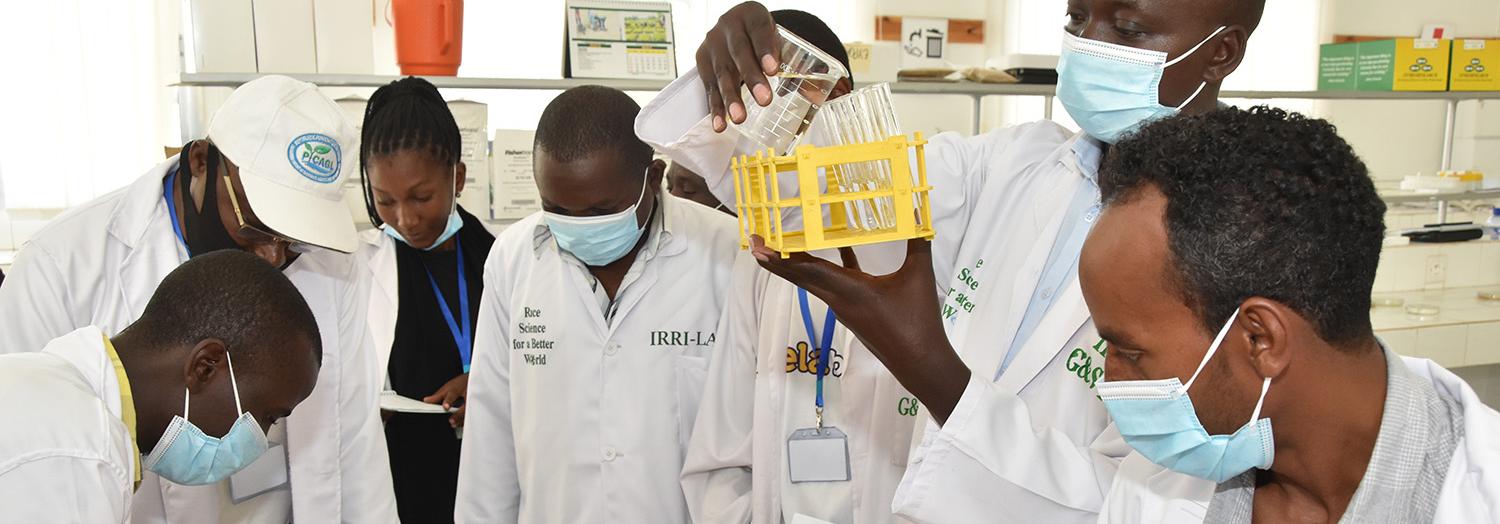
Researchers including pathologists in Sub-Saharan African agri-food systems state the pressing importance of boosting the agri-food system in the region to address its growing needs. This message was conveyed during a workshop on rice pathology held in the city of Bujumbura, Burundi from May 9 to 13 2022.
“The population in Sub-Saharan Africa is significantly increasing, at the same time the rice production might be increased too. Burundi and some African countries now have the potential to achieve self-sufficiency in rice production,” said the Assistant Minister of Environment, Agriculture and Livestock Marie Rose Niyizobaza. “However, this opportunity is not achieved due to constraints such as stresses, bacteria, viruses, environmental conditions, lack of performant varieties, overexploited rice plots due to their small area, with little fertilizer use, a limited number of qualified researchers and technicians, low mechanization of post-harvest operations, and socio-economic problems.”
During the workshop, participants learned about the different aspects of rice pathology, how to identify diseases in rice fields, to evaluate and to study the impact of these diseases, among others. They also discussed the importance of improving the process of rice cultivation for food security in the region. They acknowledge that the food needs of the population will increase four times by 2050. Despite expanding cultivation areas and increasing yields, total production only covers 60 percent of the consumption requirements.
The workshop was organized by IRRI-Burundi Office in collaboration with AfricaRice, Biodiversity-CIAT Alliance and the World Bank-funded Regional Project for Integrated Agricultural Development in the Great Lakes (PRDAIGL Project). Forty-three participants from 15 countries attended the workshop, including those from Burundi, Tanzania, Kenya, Madagascar, Mozambique, Ethiopia, Uganda, Malawi, Zambia, Ivory Coast, Mali, Senegal, Philippines, Colombia, and the Democratic Republic of Congo.
“The participation of AfricaRice, the Biodiversity-CIAT Alliance, and IRRI shows…
